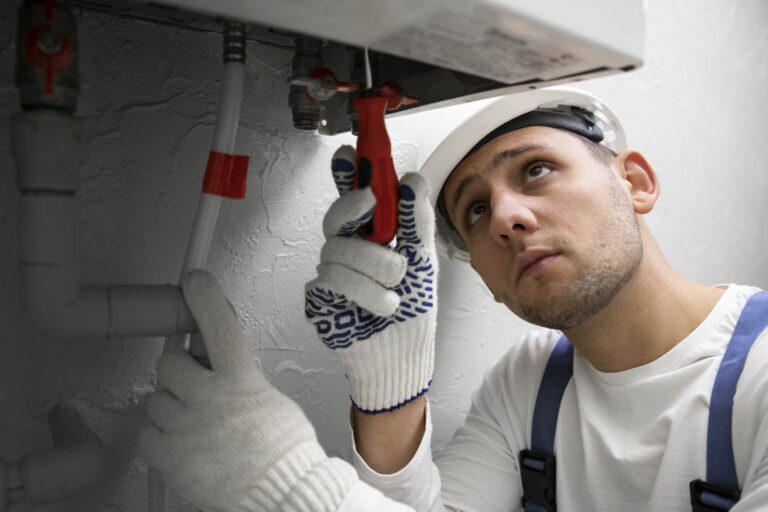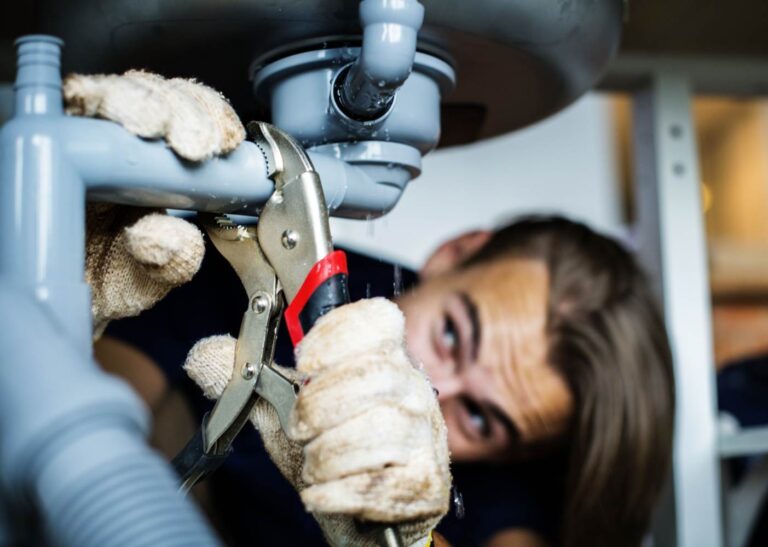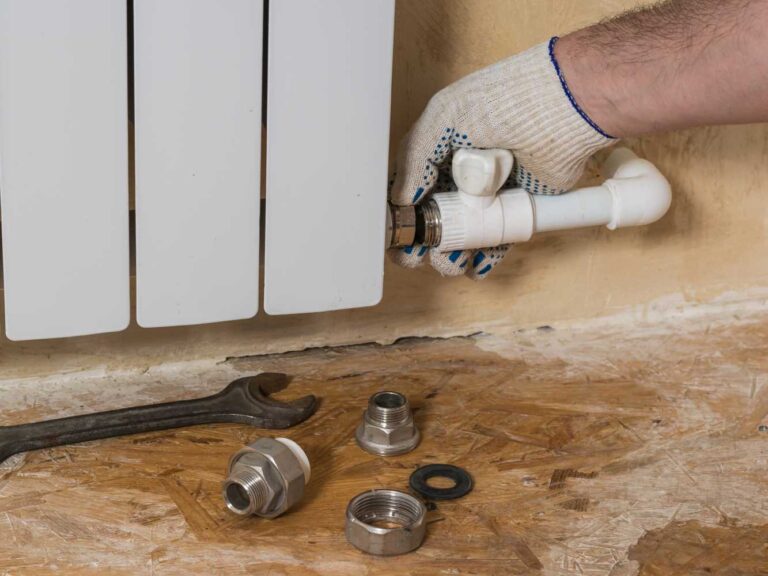- 24 September 2024
- 4 min read
New boiler installation – all you need to know!

Table of contents
Why you might need a new boiler installation?
There are several reasons why you might need a new boiler installation. If your current boiler is over 10-15 years old, it’s likely less energy-efficient than modern models, leading to higher energy bills. Frequent breakdowns or repairs are also signs that a replacement may be more cost-effective in the long run. Upgrading to a new boiler can improve energy efficiency, particularly if you’re switching to a condensing boiler, which can save up to 30% on heating bills. Home renovations, such as adding radiators or extensions, may require a larger or more powerful boiler to meet increased heating demands. Additionally, stricter energy regulations and eco-conscious choices might prompt you to switch to a more environmentally friendly system. Investing in a new boiler ensures reliable heating, fewer repairs, and long-term savings.
Boiler installation regulations
How to install a new boiler? Boiler installation in the UK must comply with several important regulations to ensure safety and efficiency. First, all installations must be carried out by a Gas Safe registered engineer, ensuring the work meets legal safety standards. New boilers must be energy-efficient condensing models, with an efficiency rating of at least 92%. Building Regulations require notifying the local authority about the installation, typically handled by your installer. The system must also have proper ventilation and flue placement to ensure safe exhaust of gases. Additionally, carbon monoxide alarms are recommended for enhanced safety. Compliance with these regulations ensures both the safety and efficiency of your new boiler.
How much does a new boiler installation cost?
The cost of a new boiler installation in the UK varies depending on the type of boiler and complexity of the installation. On average, a combi boiler costs between £1,500 and £3,000, including installation. System and conventional boilers can range from £2,000 to £4,500 due to additional components. Factors like the size of the boiler, labor costs, and any required system upgrades (such as pipework or new radiators) can further affect the price. Always get multiple quotes to ensure competitive pricing.
Types of boilers and their costs
There are three main types of boilers, each with different costs. Combi boilers, which provide heating and hot water on demand, are the most affordable, costing £1,500 to £3,000. System boilers, ideal for larger homes, range from £2,000 to £4,000, as they require a separate hot water cylinder. Conventional boilers, used in older heating systems with tanks, cost £2,500 to £4,500. Costs depend on boiler size, efficiency, and installation complexity.
Labour costs for boiler installation
Labour costs for boiler installation in the UK typically range from £500 to £1,500, depending on the complexity of the job. Factors influencing labour costs include the type of boiler, whether it’s a straight replacement or a conversion, and any required upgrades to pipework or radiators. Installing a new system or relocating the boiler may incur higher costs. It’s important to get quotes from several Gas Safe registered engineers to ensure competitive pricing for your installation.
Factors that influence new boiler installation costs
Several factors can impact the cost of a new boiler installation, including the type of boiler, property size, labour rates, and any additional work required, such as system upgrades or relocation of the boiler.
Home size
Home size plays a significant role in determining boiler installation costs. Larger homes typically require more powerful boilers with higher output, which are more expensive. Additionally, more radiators and pipework may be needed to accommodate the larger space, increasing both material and labor costs. For smaller homes, a combi boiler is often sufficient, while larger homes may need a system or conventional boiler to handle the heating and hot water demand efficiently.
Energy efficiency
Energy efficiency directly impacts boiler installation costs. High-efficiency boilers, such as condensing models with an A-rating, are typically more expensive upfront but offer long-term savings on energy bills. Choosing a more efficient boiler may also require upgrades to your heating system, like improved insulation or modern controls, adding to the installation cost. However, these investments can result in reduced energy consumption and lower operating costs, making them worthwhile in the long run.
Tips for choosing the right boiler for your home!
When choosing the right boiler, consider your home’s size and heating needs. For smaller homes, a combi boiler is efficient and space-saving. Larger homes may require a system or conventional boiler to handle higher demand. Factor in energy efficiency, as a more efficient boiler will save on energy bills over time. Additionally, consider your hot water usage and the availability of storage space for cylinders or tanks. Consult a Gas Safe engineer to determine the best fit for your specific requirements.
You might be interested in...
- DIY
- Plumbing advice

17 September 2024
Repair of a leaky overflow pipe – how to do it?
Do you see water coming out of overflow pipe on side of house? Overflow pipe leaking outside house can cause significant water damage and increase your utility bills if not addressed promptly. Overflow pipes are designed to prevent tanks and boilers from overflowing by directing excess water outside. When they leak, it often indicates a problem that needs immediate attention. Whether it’s a minor seal issue or a more significant crack, repairing a leaky overflow pipe can typically be done with a few basic tools and materials. This guide introduces the steps you need to take to identify and fix a leaky overflow pipe, ensuring your home remains dry and damage-free.
- DIY
- Plumbing advice

17 June 2024
A leaking toilet – how to fix it?
Dealing with a leaking toilet can be frustrating, but it’s a relatively common problem that many homeowners face at some point. Fortunately, fixing a leaky toilet is often a straightforward DIY task that doesn’t require extensive plumbing knowledge. Whether the leak is at the base, from the water supply line, or between the tank and the bowl, addressing it promptly can prevent water wastage and save you from higher utility bills. In this guide, we will walk you through the steps to diagnose and fix the most common types of toilet leaks, helping you get your bathroom back in order quickly and efficiently.
- Plumbing advice

17 September 2024
Reasons of a leaking radiator – this is what you need to know!
A leaking radiator can result from several common issues. Corrosion is a major cause, as rust can create holes or weaken the metal. Loose or damaged valves are another culprit, often due to wear and tear. The bleed valve, if not properly tightened, can also leak. Cracks or splits in the radiator body, caused by physical damage or manufacturing defects, can result in leaks. Additionally, joint or pipe connections may become loose or degrade over time. Regular maintenance and inspections can help identify and address these issues early, ensuring your radiator functions efficiently and leak-free.